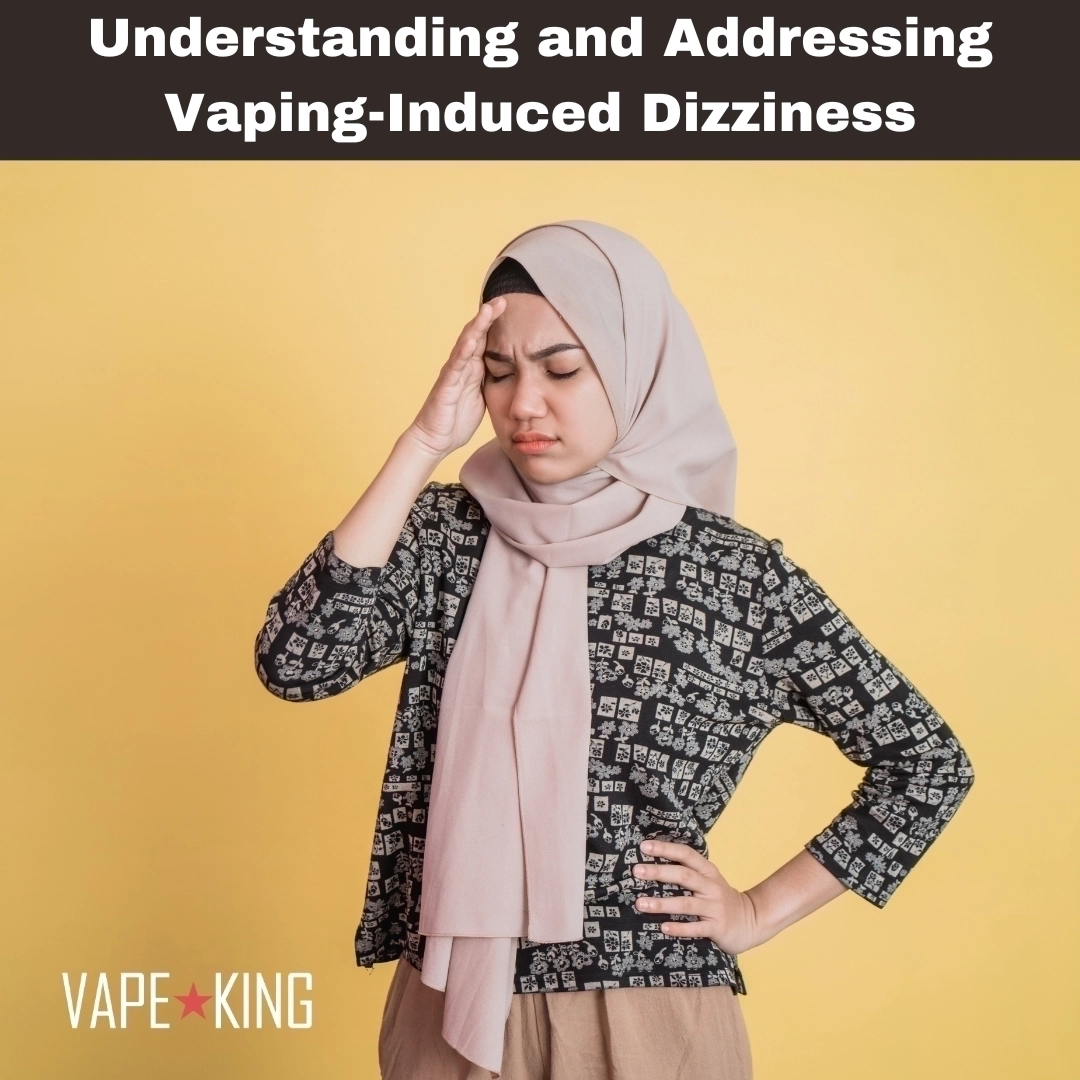Understanding and Addressing Vaping-Induced Dizziness

Experiencing temporary dizziness is a common occurrence among individuals who vape or use nicotine products. Whether you're a current smoker or a former smoker, you may recall feeling dizzy when you first started smoking cigarettes. Surprisingly, the same sensation can occur when vaping, even for seasoned nicotine users. Although the dizziness typically subsides quickly, it's an uncomfortable experience that you'd prefer to avoid.
Why Does Vaping Cause Dizziness?
Nicotine is the primary culprit behind the dizziness experienced while vaping. When you inhale nicotine, it triggers the production of epinephrine, also known as adrenaline, in your body. This hormone increases blood pressure and constricts blood vessels, reducing oxygen flow to the brain and resulting in feelings of lightheadedness.
To alleviate dizziness from vaping or smoking, the solution is straightforward: discontinue nicotine use until the sensation dissipates. Additionally, sitting down and drinking water can help alleviate symptoms. Since vaping-induced dizziness is predominantly linked to nicotine, stopping nicotine intake promptly will facilitate faster resolution of the discomfort.
Now that we've addressed the underlying cause of vaping-induced dizziness, let's explore preventive measures to avoid encountering this issue in the future.
Potential Causes and Solutions for Vaping-Induced Dizziness
High Nicotine Strength: In regions without nicotine strength restrictions, vaping products often contain high nicotine concentrations, leading to intensified nicotine rushes. If vaping produces a stronger nicotine sensation than smoking, consider switching to a lower nicotine strength product.
Mismatched Vaping Device Power: When using refillable vaping devices, ensure that your nicotine strength aligns with your device's power capabilities. Powerful devices designed for large vapor production necessitate lower nicotine concentrations to prevent adverse effects like dizziness, coughing, or headaches.
Excessive Vaping Frequency: Unlike smoking, vaping offers continuous nicotine delivery without the need to replace cigarettes. Some individuals may vape incessantly, leading to excessive nicotine consumption and occasional dizziness. To mitigate this, regulate vaping sessions and take breaks to avoid overexposure to nicotine.
Nicotine Usage Gaps: Prolonged intervals between nicotine consumption can result in heightened sensitivity to nicotine upon resuming vaping, leading to dizziness. Manage your vaping schedule to maintain consistent nicotine levels in your system and reduce the likelihood of experiencing dizziness.
Dehydration: Dizziness during vaping may not solely stem from nicotine; dehydration can exacerbate symptoms. Vape juice ingredients like vegetable glycerin and propylene glycol have moisture-absorbing properties, potentially causing dehydration. Stay hydrated by drinking extra water while vaping to replenish lost fluids.
In conclusion, vaping-induced dizziness predominantly arises from nicotine's effects on the body. By adjusting nicotine strength, moderating vaping frequency, and staying hydrated, you can minimize the risk of experiencing dizziness during vaping sessions. Listen to your body's cues, implement preventive measures, and prioritize a comfortable vaping experience.
No posts found
Write a reviewRecent posts
- WHO Issues Warning Regarding Falsely Labelled Propylene Glycol: A Caution for E-Liquid Manufacturers
- Salvaging a Wet Vape: Tips for Reviving Your Device After Water Exposure
- Discover the Top 10 Disposable Vapes in South Africa
- Unveiling Australia's Flawed Vaping Policies: A Catalyst for Illicit Markets

